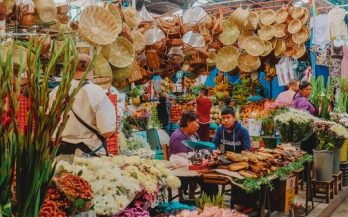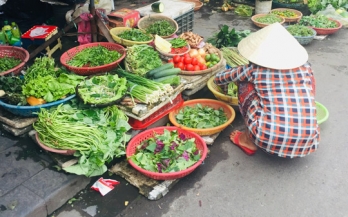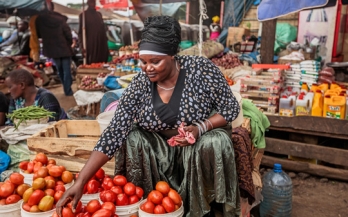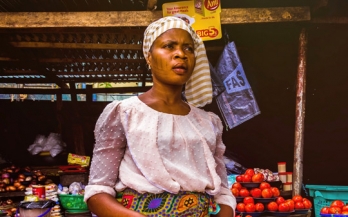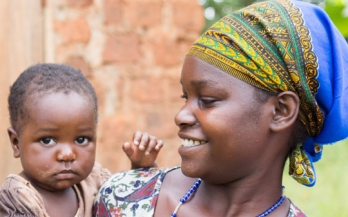These document series summarise some rapid assessments undertaken by the Global Alliance for Improved Nutrition (GAIN) to understand early impacts of the COVID-19 coronavirus pandemic on food systems in a set of low- and middle-income countries where GAIN works (Bangladesh, India, Pakistan, Indonesia, Mozambique, Ethiopia, Kenya, Tanzania, Rwanda, and Nigeria).
These document series summarise some rapid assessments undertaken by the Global Alliance for Improved Nutrition (GAIN) to understand early impacts of the COVID-19 coronavirus pandemic on food systems in a set of low- and middle-income countries where GAIN works (Bangladesh, India, Pakistan, Indonesia, Mozambique, Ethiopia, Kenya, Tanzania, Rwanda, and Nigeria).
Fighting malnutrition in all its forms is one of the major challenges of the 21st century. Addressing it will require an agricultural transformation. Within Africa, this must include a focus on small and medium-size farms, which provide about 80% of total calories in sub-Saharan Africa, as well as other small actors along the value chain.
GAIN and Incofin Investment Management have announced a new collaboration to take forward the newly established Nutritious Food Financing Facility (N3F) that will equip African SMEs with financing and skills to make nutritious food more available and affordable.
Poor quality diets for young children after they stop exclusive breastfeeding is a major nutrition challenge in many countries. If the complementary foods provided to young children lack essential proteins, vitamins and minerals, it can hinder growth and development and make them vulnerable to illnesses.
On World Egg Day 2019, GAIN highlights the value and benefits of eggs for all. Providing a high-quality source of protein, eggs are among the most nutritious foods on earth. Their nutritional value is undeniable to people of all ages. For infant and children, eggs are among the best food sources as they contain nutrients which help brain development and physical growth.
GAIN works on supply and demand, as well as on changing incentives, rules and regulations to encourage production and consumption of nutritious and safe foods. We seek to understand and tackle barriers faced by small enterprises working to boost availability, affordability, desirability, and convenience of nutritious foods like eggs, especially for people on low-incomes.
This factsheet highlights the vastly different levels of egg supply seen across African regions, selected African countries, and selected high-income countries. It discusses why eggs remain scarce and expensive in many low-income settings, including across much of Western, Eastern, and Middle Africa.
This project aimed to improve complementary feeding practices through the delivery of a micronutrient powder (MNP) and behaviour change communication messages distributed through the public health system. The objective of the endline survey was to examine the effectiveness of the programme by comparing the results of key outcomes indicators to those from a baseline survey in the same population.
The objective of the study was to learn about factors that facilitated or limited programme delivery and adherence to DESTA recommendations from the perspective of caregivers.
